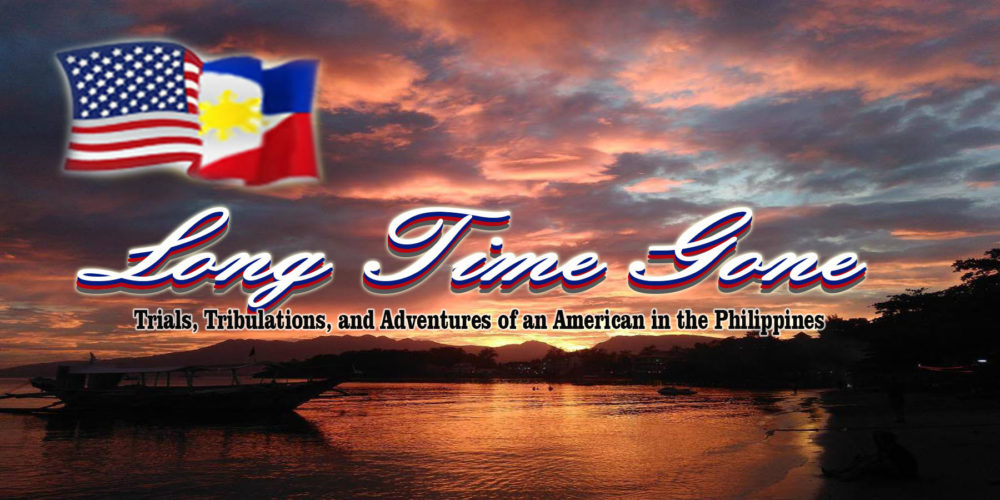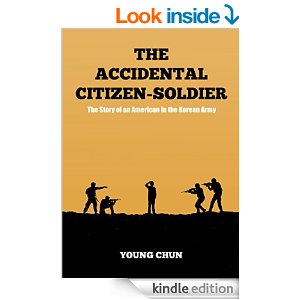Imagine being born and raised in the U.S.A. You work your way through the public education system and earn a degree from the University of Washington. Like many young people you find yourself saddled with student loan debt and working in a dead end job. So you see an advertisement recruiting folks to teach English in Korea and figure why not?
And so began the nightmare for Young Jin Chun. When he applied to Korean immigration for an extension of his employment visa he was told he was not eligible because he was already a Korean citizen. Although Chun’s parents had immigrated to the US several years before he was born, someone (it is not clear who) had his name added to the family register in Korea. And as far as the Korean government is concerned, that makes you a bonafide Korean. Chun didn’t think it was that big a deal until he received notice that he was being drafted into the ROK army. That got his attention!
Chun did everything a reasonable person would do to rectify this error, gathering all his records to demonstrate he was as American as an apple pie. The American embassy in Seoul told him “it’s not our problem”. The Korean consulate in the USA said he was past the age to renounce his Korean citizenship. And so it came to pass that he was neatly boxed in by two uncaring governmental bureaucracies.
Chun’s passport was blocked preventing him from leaving Korea. In desperation he enlisted in the U.S. Army, but as he was preparing to board the aircraft at Osan Air Force Base for basic training at Fort Jackson, SC, Korean immigration nabbed him and shortly thereafter he found himself a 27 year old American conscript in the Korean army. A Korean soldier who didn’t speak Korean or even like Korean food.
You can read this news account which provides more detail on the events leading up to this insane situation. Or better yet, you can purchase Chun’s book ($2.99 for the Kindle version at Amazon) and read the sad and sometimes funny account of his life in the Korean military. That’s what I did and it’s a good read. After surviving basic training, he was assigned as a linguist with the Second ROK Army in Daegu. I had to laugh at his account of being called to interpret a meeting between American and Korean Army officers. He finally had to tell the Americans “I’m sorry, I don’t understand what he’s saying either”. And when his commanding officer found out about the interview he gave to the Seattle newspaper (linked above) he was on everyone’s shit list. How bad was it? So bad that he volunteered to deploy to Afghanistan! Anyway, read the book.
I was talking to a co-worker who spent many years with the State Department about Young Chun’s adventure and he was incredulous. At first, he thought the story was made up, but I assured him it was not. He agreed the U.S. embassy in Seoul is next to worthless, but felt the American government could have and should have intervened on his behalf. And last night I recounted the tale to a Korean-American friend (also born in the USA) who came to Korea around the same time as Chun and he told me the same thing had almost happened to him. His father was apparently well-connected with Korean government officials and managed to get him exempted from Korean military service.
And I guess that’s pretty much how the world works–it’s not who you are but who you know. Chun did survive his adventure at least and I suppose it all turned out as best as could be expected. I understand he is still living and working in Korea and his Korean language skills have improved immensely. So there’s that.


John, it seems that you really understood what happened to me, which usually takes people a long time to get. I agree that it’s not who you are but who you know. Unfortunately, I didn’t know anyone at the time. I did, however, learn that lesson while I was in Afghanistan, and it was helpful to me for the last year of my service. Thanks for posting about the book on your blog.
Indeed, Young. My favorite parts of the book were where you learned to game the system more or less to your advantage. I guess that’s what smart soldiers learn to do in every army of the world.
Look forward to meeting you one day. Amazon says the books should be delivered by March 24, but that sounds overly optimistic given my experience with the Army Post Office.
Sounds good, John. Just let me know when they come in (even if they take a while). I’m looking forward to meeting you in person and signing my book for the first time.
My sincere condolences as to your situation Young. I forget- did they ever actually fix the loophole that got you conscripted, or is still just a blanket warning to all Gyopos to verify your citizenship status before entering the country?
My understanding is that if you are a dual citizen (i.e. on the ROK family register) and have not formally renounced your Korean citizenship by the deadline age, you can still be drafted.
That’s my understanding as well. Ironically this situation exists because of a law originally designed to close a loophole- eighteen is the cut-off age because a reasonably high-profile celebrity renounced his Korean citizenship conveniently right before he was due to ship out. Where it gets murky is that plenty of Koreans who were raised overseas, such as Young, don’t even realize they have Korean citizenship until they become adults because it’s not something that’s relevant to daily life unless you actually live in Korea.
The US also doesn’t recognize dual citizenship, which is probably why the embassy was no help. Although you’d still think our government would have some slight interest in American citizens being forced to serve in foreign armies…sorry if I’m just recapping stuff that’s in the book. Really is a fascinating subject.
I agree William. What came to my mind was that the U.S. gov’t sends Jimmy Carter and or Bill Clinton to rescue idiot Americans who stray into NK hands. And then some guy like Young gets totally hosed by the ROKs and no one gives a damn.
I’m sorry for the late reply, William, but it seems like John has already addressed your question. Anyway, I don’t know if anything has changed, but I doubt that the government would change anything that affects such a small number of people. I don’t know if it’s because of the culture, but minorities (of any kind) aren’t really protected well here.
Pingback: A league of distinguished gentlemen | Long Time Gone